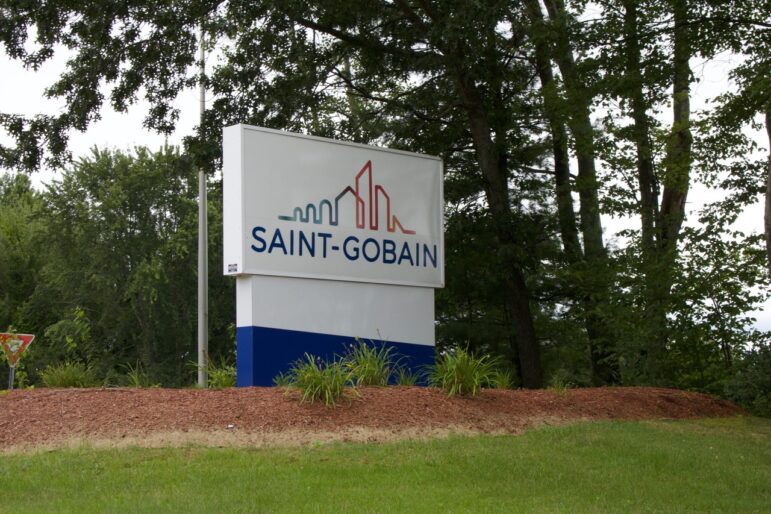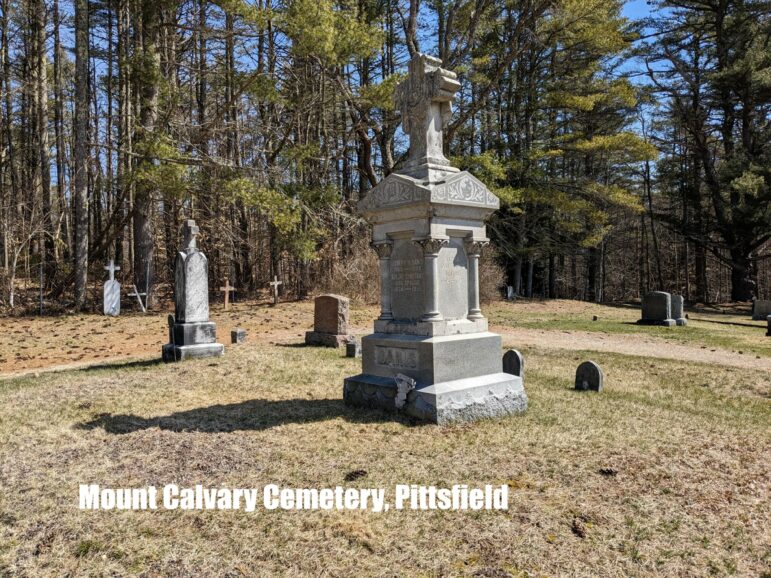Distant Dome is co-published by InDepthNH.org and Manchester Ink Link
By GARRY RAYNO,
Distant Dome
New Hampshire’s economy has been roaring along for the past few years, but the state may be facing a crisis years in the making that could halt the prosperity.
Granite State students do well on standardized tests buoyed by several high-powered private schools, but a major segment is in danger of being left behind.
As a recent report by the New Hampshire Center for Public Policy Studies found, small rural school districts are losing state aid while expenses increase and property taxpayers face larger and larger bills.

Garry Rayno
Overall, the student population has declined in New Hampshire, but expenses have not due to tens of millions of dollars of downshifting by state lawmakers in retirement and school building costs and increasing expectations for schools.
State aid to school districts has been stagnant for nearly a decade and in the past two state budgets has declined because it is tied to student enrollments.
A recent lawsuit filed by Dover will exacerbate the problem. The suit concerns a cap on state aid to fast-growing districts approved by lawmakers in the 2011 overhaul of the education funding system.
The cap on growth has meant school districts like Dover, Bedford, Windham, Grantham, Exeter and Greenland did not receive the aid they should have under the distribution formula.
Lawmakers have since done away with the cap while reducing state aid for schools with lower student enrollments.
“Colebrook, Hinsdale, Greenville, Lancaster, Berlin, Northumberland and Newport are likely to see a reduction of more than 10 percent in the aid they receive from the state between 2017 and 2022,” according to the institute’s study. “Assuming nothing else changes, this means that these communities will have to increase their tax rates by as much as 10 percent — even before allowing for cost increases in other areas.”
Class divide
The changes mean property rich communities will continue to offer greater educational opportunities to their students while property poor communities will have difficulty maintaining the educational opportunities for their students and they may be reduced.
Such a situation perpetuates the cycle of poverty for many people in rural communities as parents will gravitate to the best school districts if they can afford to live in those communities.
At the same time, lawmakers have made it easier for parents to take their children out of public schools to attend charter and private schools, as well as home school students. When the students leave, the state per pupil aid goes with them.
Supporters of school choice say competition will improve all schools as if schools were businesses, which they are not.
Public schools have to take all students in their district, but private and charter schools do not, leaving the more expensive students to educate — those with Individual Education Plans, or 504’s or who have mental health and behavior issues — in the public schools.
Also, the best teachers gravitate to school districts that pay near the top of the scale, which further sentences children in poor communities to an inferior education.
The great influx into the state of young, well-to-do, highly educated young families of the late 80s and 90s is over so the state’s workforce will largely come from current residents for some time into the future.
And New Hampshire remains at the bottom of the 50 states for financial support for higher education and that shows as New Hampshire students have the highest debt in the country, forcing many to leave the state for higher paying jobs.
The state is about to experience a perfect storm and has done little to allow schools to navigate to safer ground.
What to do?
There are no easy answers, but New Hampshire has to invest more in education if it wants to grow as it once did.
However, the political will to take a more active role to level the playing field for school districts does not appear to be there.
The overriding issue is money and how it is raised. And as the institute’s report finds, that has changed little in the 20 years since the Claremont II Supreme Court decision saying using widely varying property tax rates to pay for public education is unconstitutional.
Public education needs a major overhaul, but envisioning what a new system would look like is difficult given the limitations traditionally placed on state involvement.
The public education crisis is building as New Hampshire businesses cope with an aging workforce of baby boomer nearing retirement.
Critical future
The next decade is going to be critical to the future of the Granite State and what it will become as politicians focus on business tax cuts, the opioid epidemic, gun rights, right to work and decriminalizing marijuana, while the focus on education is creating more choices, undermining common core and establishing parental rights over school curriculum.
New Hampshire needs to focus more on what is best for its future and its children’s rather than individual interests.
The spreadsheet wars that dominated the education funding debate after the Claremont II ruling are long over but are still driving education decisions.
State Senate District 16

Scott McGilvary
On Tuesday, the voters of Manchester’s three northern wards, Bow, Candia, Dunbarton and Hooksett will go to the polls to decide who will be their state senator.
Long held by Republicans, Democrat Scott McGilvary won the seat in the 2016 election, but died in office last winter.
Incumbent Sen. David Boutin, R-Hooksett, did not run for reelection saying he wanted to spend more time with his family.
However, Boutin is seeking the seat again and will face Democratic Manchester alderman Kevin Cavanaugh and Libertarian Jason Dubrow of Dunbarton.
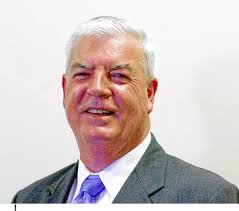
David Boutin
The two major party candidates have raised significant money for the special election. In his July 9 report, Cavanaugh had raised $125,772 and spent $87,347, while Boutin raised $108,508 and spent $62,670.
But that is not the only money spent on the campaign. The Republican State Committee has raised $61,000, $50,000 of which has come from the Senate Republican Majority PAC controlled by Senate President Chuck Morse of Salem, and spent $52,000 for radio ads and mailers.
Getting ugly
As often happens as races wind down, this one has become rather nasty over the issue of immigration and sanctuary cities.
This district is fairly Republican, but not overly conservative and Boutin has been fairly successful having more problems with several primary challengers than Democrats in the general election.
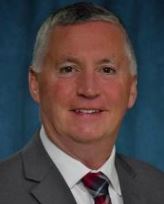
Kevin Cavanaugh
Boutin is more moderate than many members of the Senate Republican caucus — he opposes right-to-work and favors Medicaid expansion — and is not against working with Democrats.
Cavanaugh is considered an up and coming Democrat who is likely to try for public office beyond Alderman.
What makes this race more interesting than usual is the Libertarian Dubrow and how much support he will receive from very conservative Republicans who are not crazy about Boutin.
Heavy artillery
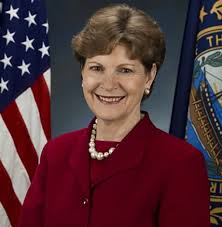
U.S. Sen. Jeanne Shaheen, D-NH
Republicans and Democrats have both brought out the heavy artillery with U.S. Sens. Jeanne Shaheen and Maggie Hassan, and U.S. Rep. Carol Shea-Porter, along with former presidential candidate Martin O’Malley campaigning for Cavanaugh, and Gov. Chris Sununu and former U.S. Sen. Kelly Ayotte cutting radio ads for Boutin.

Kelly Ayotte
A special election is a crap shoot at any time, but more so in the summer when a beautiful day means more people choose Hampton Beach instead of the voting booth, while others are away on vacation.
Turnout is key and which side does the better job will determine who wins this race.
Garry Rayno can be reached at  Garry Rayno’s Distant Dome runs exclusively on Manchester Ink Link and InDepthNH.org, where Rayno will explore a broader perspective on State House – and state – happenings. Over his three-decade career Rayno has closely covered the NH State House for the New Hampshire Union Leader and Foster’s Daily Democrat, and his coverage spanned the news spectrum, from local planning, school and select boards, to national issues such as electric industry deregulation and Presidential primaries. He is former editor of The Hillsboro Messenger and Assistant Editor of The Argus-Champion. Rayno graduated from the University of New Hampshire with a BA in English Literature and lives with his wife Carolyn in New London.
Garry Rayno’s Distant Dome runs exclusively on Manchester Ink Link and InDepthNH.org, where Rayno will explore a broader perspective on State House – and state – happenings. Over his three-decade career Rayno has closely covered the NH State House for the New Hampshire Union Leader and Foster’s Daily Democrat, and his coverage spanned the news spectrum, from local planning, school and select boards, to national issues such as electric industry deregulation and Presidential primaries. He is former editor of The Hillsboro Messenger and Assistant Editor of The Argus-Champion. Rayno graduated from the University of New Hampshire with a BA in English Literature and lives with his wife Carolyn in New London.


